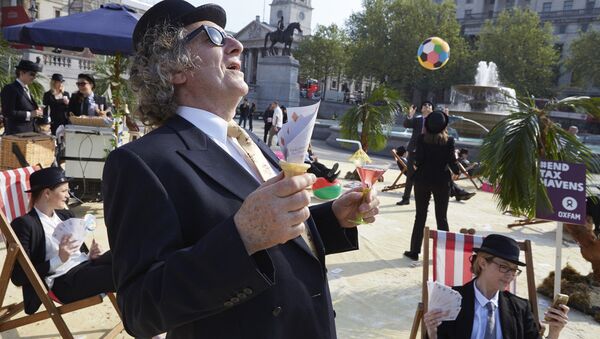The UK Parliament is hosting a global tax transparency summit which — according to its own agenda — is committed to "ensure Parliamentarians remain a vital scrutineer of tax compliance". It comes just 18 months after the UK Government said it would take a global lead on cracking down money laundering after it was revealed at least US$190 billion worth of property in England and Wales is now owned by offshore companies.
The @CommonsPAC chaired by @Meg_HillierMP will hold a Global Tax Transparency Summit to tackle aggressive tax avoidance #showmethemoney pic.twitter.com/lzY0IYElcn
— Public Accounts Comm (@CommonsPAC) December 5, 2016
However, Transparency International UK says that — despite outward appearances — companies based in the UK's Overseas Territories (OTs) and Crown Dependencies are widely used in money laundering and grand corruption cases. These include the British Virgin Islands (BVI), the Cayman Islands and Montserrat, among others.
"The absence of any public information about them allows corrupt beneficial owners to buy luxury goods and property with anonymity and enjoy their ill-gotten gains with impunity. Journalists, citizen investigators and businesses looking to find out who's behind these anonymous corporate entities hit a brick wall whenever they encounter them, and rely almost entirely on periodic leaks like the Panama Papers to unveil who really owns them," the report by TI-UK states.
According to data released through the Panama Papers, over half of the 200,000 and more companies managed by the legal firm in Panama, Mossack Fonseca, were registered in the British Virgin Islands alone.
.@duncanhames of @TransparencyUK says tax abuse and corruption are two sides of the same coin: unaccountable capital #gtts @CommonsPAC pic.twitter.com/rrAt6z20pF
— CPA UK (@CPA_UK) 9 December 2016
No Public Access
TI-UK says that there are over 400,000 live companies in the BVI, which is equivalent to over seventeen for each of the Islands' 24,000 inhabitants. Although the Cayman Islands featured less prominently in the Panama Papers, UK Land Registry data shows that companies based in the Caymans own almost 1,500 land titles throughout the UK, over a third of which are in London.
In spite of the fact that the UK has committed to opening up a register of who actually owns what in the British Oversea Territories, by 2018, access to that information is not being made available to the public or journalists.
Chair of @CommonsPAC, @Meg_HillierMP speaks about the importance of this week's Global Tax Transparency Summit in London #ShowMeTheMoney pic.twitter.com/NWlltPvgSE
— Public Accounts Comm (@CommonsPAC) December 6, 2016
Under an agreement with the UK Government, the BVI has committed to allowing UK law enforcement agencies to request information on beneficial ownership via Virgin Islands law enforcement agencies. However, there are currently no plans to establish a public register of beneficial ownership.
Similarly, the Cayman Islands has committed to allowing law enforcement agencies in the UK to have automatic access to beneficial ownership information via a central electronic database or similarly effective arrangement, but there are currently no plans to establish a public register of beneficial ownership, according to TI-UK.


